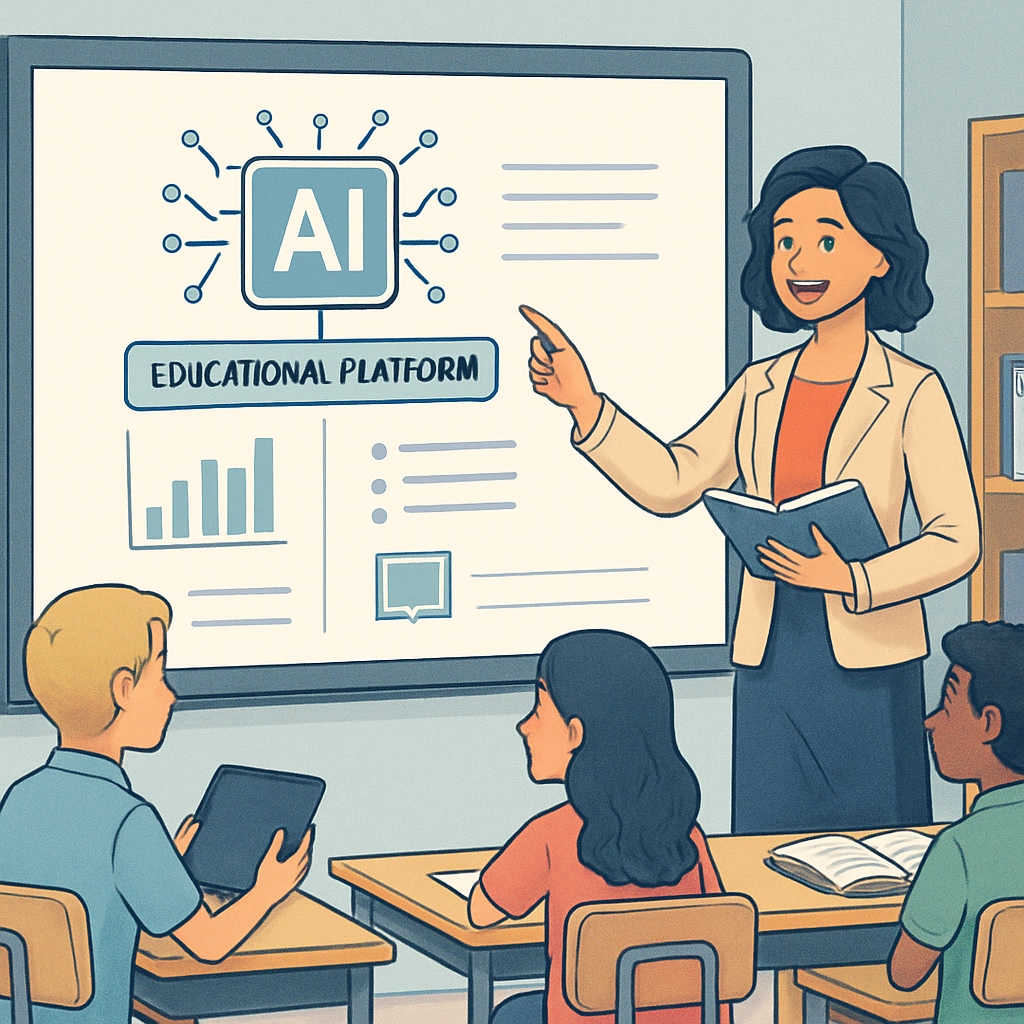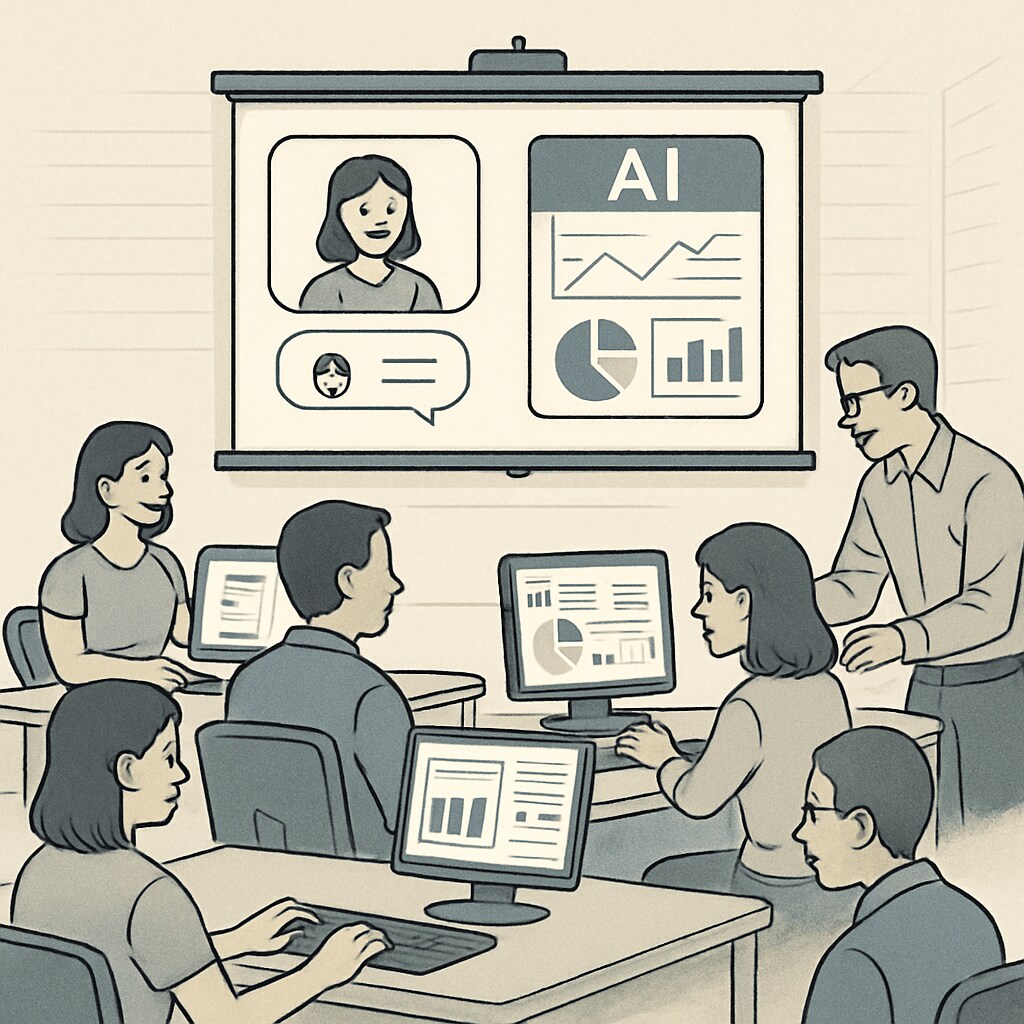The advent of AI education applications is profoundly transforming how we perceive teacher value and technological skills in modern classrooms. While artificial intelligence offers exciting opportunities to enhance learning experiences, it also raises significant questions about the role of educators in the future. Are these tools empowering teachers or rendering their expertise obsolete? This article examines the impact of AI on teacher value, professional roles, and salary structures, and explores ways to maintain a balance between technological advancements and the human element of teaching.
How AI Education Applications Are Reshaping Teaching
Artificial intelligence has introduced a wide array of tools into education, such as personalized learning platforms, automated grading systems, and virtual tutors. These technologies promise to make learning more efficient and accessible. For example, AI-driven platforms can tailor lessons to individual student needs, accelerating their progress while reducing the workload on teachers. According to a Britannica article on AI, machine learning algorithms are increasingly being used to adapt educational content dynamically, making them invaluable in large classrooms.
However, these advancements come with challenges. Teachers often find themselves competing with machines in areas like content delivery and assessment. This shift has led to questions about whether traditional teaching skills are being devalued in favor of technological proficiency. As a result, educators must navigate an evolving landscape where their roles are being redefined by AI capabilities.

Teacher Value Beyond Automation
Despite the efficiency of AI systems, they lack the empathy, creativity, and adaptability that define exceptional teachers. Students often require emotional support, mentorship, and inspiration—qualities that no algorithm can replicate. This human aspect of education underscores the irreplaceable value of teachers in fostering critical thinking and emotional intelligence.
Moreover, the role of educators as facilitators of ethical discussions about technology is becoming increasingly important. As AI continues to permeate every aspect of society, teachers are uniquely positioned to guide students in understanding the ethical implications of these tools. For instance, discussions on digital privacy or the biases inherent in machine learning systems require a human perspective that AI cannot provide.
In this context, it is essential to redefine teacher value not by what AI can do but by what it cannot. By focusing on their unique strengths, educators can position themselves as indispensable partners in an AI-driven educational ecosystem.
Impact on Salaries and Professional Development
The integration of AI in education is also influencing teacher salaries and professional expectations. As schools and institutions invest in advanced technologies, they may allocate budgetary resources away from traditional salary structures. This raises concerns about whether teachers will be adequately compensated for their evolving roles.
To remain competitive, educators must develop new skills, such as data analysis and technology integration. Professional development programs that focus on upskilling teachers in AI competencies are essential. For example, learning to manage AI-powered tools or interpret educational data analytics can enhance a teacher’s value in the job market. This shift is already evident in countries that have begun integrating AI training into teacher certification programs.
However, the financial burden of acquiring these new skills often falls on the educators themselves. Policymakers and educational institutions must address this disparity to ensure that teachers are both prepared and fairly compensated for their additional responsibilities.

Balancing Technology and Humanity in Education
As AI continues to advance, striking a balance between technology and humanity is crucial for preserving the essence of education. Schools must approach AI adoption as a complementary tool rather than a replacement for human educators. Collaborative teaching models, where AI assists rather than replaces teachers, can be a practical solution.
For instance, AI can handle repetitive administrative tasks, freeing teachers to focus on higher-order teaching activities. Additionally, fostering partnerships between educators and AI developers can help ensure that these tools are designed with the needs of both students and teachers in mind. According to this article on educational technology, inclusive design practices are critical for creating AI systems that enhance rather than hinder teaching.
Ultimately, the goal should be to create an educational environment where technology amplifies the impact of teachers, rather than diminishing their roles. By emphasizing the human aspects of teaching and equipping educators with the necessary technological skills, the profession can thrive in the age of AI.
Readability guidance: Use of concise paragraphs and lists to summarize key points; highlight actionable insights for educators and policymakers. Ensure a balanced discussion of opportunities and challenges posed by AI in education.


